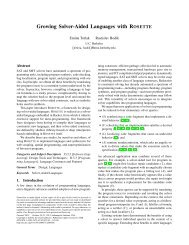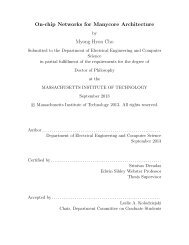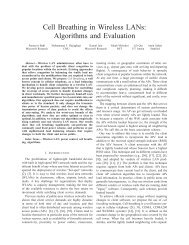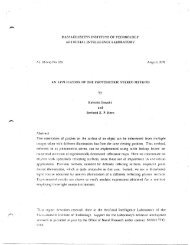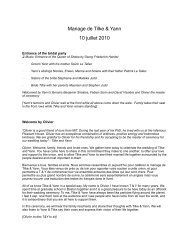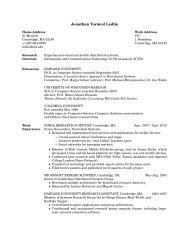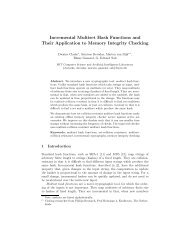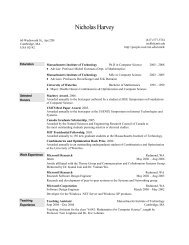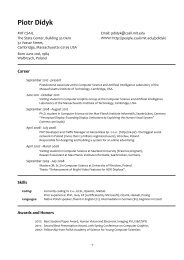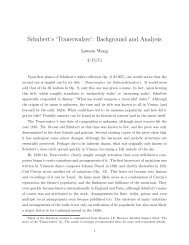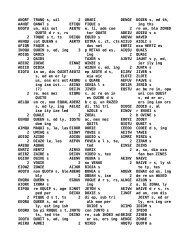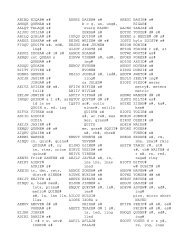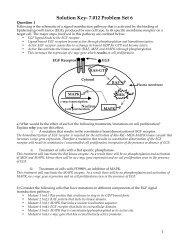Prism User's Guide - CSAIL People - MIT
Prism User's Guide - CSAIL People - MIT
Prism User's Guide - CSAIL People - MIT
Create successful ePaper yourself
Turn your PDF publications into a flip-book with our unique Google optimized e-Paper software.
54 <strong>Prism</strong> User ~ <strong>Guide</strong><br />
5 4 - - - - - - -- ri s m U- G<br />
Breakpoints and traces are events. You can specify before the execution of a program<br />
begins what events are to take place during execution. When an event<br />
occurs:<br />
· The execution pointer moves to the current execution point.<br />
* A message is printed in the command window.<br />
· If you specified that an action was to accompany the event (for example,<br />
the printing of a variable's value), it is performed.<br />
* If the event is a trace, execution then continues. If it is a breakpoint, execution<br />
does not resume until you explicitly order it to (for example, by<br />
choosing Continue from the Execute menu).<br />
<strong>Prism</strong> provides various ways of creating these events - for example, by issuing<br />
commands, or by using the mouse in the source window. Section 4.3 describes<br />
how to create breakpoint events; Section 4.4 describes how to create trace events.<br />
Section 4.2 describes the event table, which provides a unified method for listing,<br />
creating, editing, and deleting events.<br />
You can define events so that they occur:<br />
* When the program reaches a certain point in its execution - for example,<br />
at a specified line or function.<br />
* When the value of a variable changes - for example, you can define an<br />
event that tells <strong>Prism</strong> to stop the program when z changes value. This kind<br />
of event is sometimes referred to as a watchpoint. It slows execution considerably,<br />
since <strong>Prism</strong> has to check the value of the variable after each<br />
-statement is executed.<br />
· At every line or assembly-language instruction.<br />
* Whenever a program is stopped- for example, you can define an event<br />
that tells <strong>Prism</strong> to print the value of z whenever the program stops.<br />
These are referred to as triggering conditions.<br />
In addition, you can qualify an event as follows:<br />
* So that it occurs only if a specified condition is met - for example, you<br />
can tell <strong>Prism</strong> to stop at line 25 if x is not equal to 1. Like watchpoints,<br />
this kind of event slows execution.<br />
Version 1.2, March 1993<br />
Copyright 0 1993 Thinking Machines Corporation



